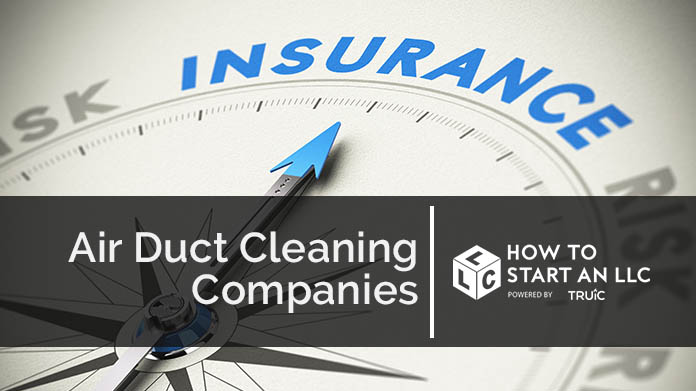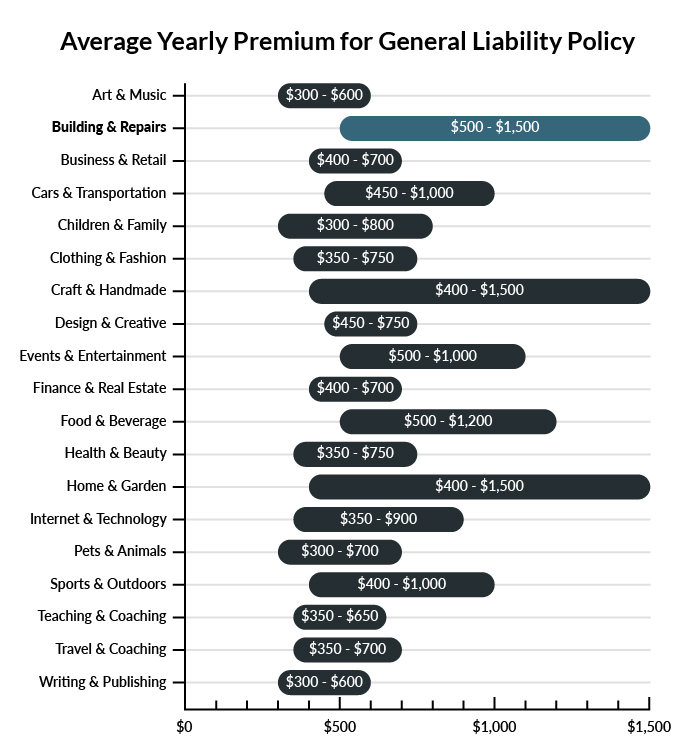Air Duct Cleaning Business Insurance
Getting insurance for your air duct cleaning business is essential.
Air duct cleaning businesses need to be protected against claims involving things like damage to a customer’s property, misrepresentation of services, or negligence.
For example, an employee could improperly perform a clean and damage a customer’s property, or injure themselves while on the job and require time off.
We’ll help you find the most personalized and affordable coverage for your unique business.

Recommended: Next Insurance is dedicated to matching small businesses with the right policy at the best price.
Best Insurance for an Air Duct Cleaning Business
General liability insurance is — generally speaking — one of the most important insurance policies for air duct cleaning businesses.
Some of the risks general liability insurance covers are:
- Bodily injury
- Property damage
- Medical payments
- Legal defense and judgment
- Personal and advertising injury
In addition to general liability insurance, air duct cleaning businesses often take advantage of numerous other policies to ensure that they are comprehensively protected. Some of these other policies include:
- Professional liability insurance
- Commercial auto insurance
- Home-based business insurance
- Commercial property insurance
- Commercial umbrella insurance
Overall, businesses have two main options when it comes to where to get their insurance from entirely online insurers, or those with a physical presence too.
Online insurers are generally more recommended for new or small businesses because the insurance they offer is of a similar quality to brick-and-mortar providers and is fast, cost-efficient, and accurate thanks to their use of technology like AI.
Let's Find the Coverage You Need
The best insurers design exactly the coverage you need at the most affordable price.
Cost of General Liability Insurance
The average air duct cleaning company in America spends between $500 - $1,500 per year for $1 million in general liability coverage.
Compare the average cost of general liability insurance for an air duct cleaning business to other professional industries using the graph below.
Several factors will determine the price of your policy. These include your:
- Location
- Deductible
- Number of employees
- Per-occurrence limit
- General aggregate limit
You may be able to acquire general liability insurance at a discounted rate by purchasing it as part of a business owner’s policy (BOP) rather than as a standalone policy.
A BOP is a more comprehensive solution that includes multiple forms of coverage, such as business interruption and property insurance.

Find the Best Rate
Discover the best coverage at the lowest rate in our cheapest business insurance review.
Common Situations That General Liability Insurance May Cover for an Air Duct Cleaning Business
Example 1: When one of your salespeople makes inaccurate and unfavorable comments about a competitor, the company files a defamation lawsuit. General liability insurance would cover your legal fees and any damages awarded in a settlement.
Example 2: A customer injures their head after tripping over your equipment and falling down the stairs at a job site. General liability insurance would cover the customer’s medical bills.
Example 3: As a vendor drops off supplies, he accidentally knocks a large stack of HVAC supplies onto his head and needs immediate medical care. General liability insurance would cover the vendor’s medical bills and your legal fees in the event of a lawsuit.
Other Types of Coverage Air Duct Cleaning Businesses Need
While general liability is the most important type of insurance to have, there are several other forms of coverage you should be aware of. Below are some of the most common types of coverage:
Commercial Auto Insurance
Any truck or van you use primarily for business requires commercial auto insurance to protect the vehicle, driver and others on the road in the event of an accident. Be sure to select a policy that covers not only accident-related vehicle repair costs and medical treatment for anyone injured, but also sufficient protection for any special equipment you carry to job sites in your vehicles.
Professional Liability Insurance
If a customer decides your services caused them injury and files a lawsuit, professional liability insurance would cover your legal fees as well as any damages awarded in a settlement.
Commercial Property Insurance
If you own the building in which you operate, you’re responsible for all business-related property housed there in the event of a fire, burglary, or natural disaster. Commercial property insurance would cover the cost of replacing your equipment and supplies after an accident so you can recover quickly.
Home-Based Business Insurance
If you operate out of a home office or garage, check with your homeowners insurance provider to ensure your policy protects you against liability from business-related accidents. If not, consider adding home-based business coverage to your business owner policy (BOP) or your existing home insurance policy.
Commercial Umbrella Insurance
While your general liability insurance policy covers most claims, some accidents or lawsuits may be so catastrophic that they threaten to exhaust the limits of your primary coverage. Commercial umbrella insurance protects you from paying out-of-pocket for any legal fees and awarded damages that exceed your primary policy.
Additional Steps To Protect Your Business
Although it’s easy (and essential) to invest in business insurance, it shouldn’t be your only defense.
Here are several things you can do to better protect your air duct cleaning business:
- Use legally robust contracts and other business documents. (We offer free templates for some of the most common legal forms.)
- Set up an LLC or corporation to protect your personal assets. (Visit our step-by-step guides to learn how to form an LLC or corporation in your state.)
- Stay up to date with business licensing.
- Maintain your corporate veil.
Air Duct Cleaning Business Insurance FAQ
Yes, absolutely. You will need to first get a quote from an online business insurance provider like Next Insurance. Next allows you to then purchase a policy immediately and your coverage will be active within 48 hours.
A typical business owner’s policy includes general liability, business interruption, and commercial property insurance. However, BOPs are often customizable, so your agent may recommend adding professional liability, commercial auto, or other types of coverage to your package depending on your company’s needs.
"Business insurance" is a generic term used to describe many different types of coverage a business may need. General liability insurance, on the other hand, is a specific type of coverage that business owners need to protect their assets.
It is vital to secure appropriate business insurance for your air duct cleaning business before its operations start. Not doing so can leave it vulnerable to the many potential risks of this industry (e.g., property damage or personal injury).
Be aware that you may be legally obligated to own certain insurance policies depending on your situation (e.g., workers’ compensation).
Not necessarily. Certain exceptions may be written directly into your air duct cleaning business insurance policy, and some perils may be entirely uninsurable.
Yes, an LLC is meant to create a legal barrier between your business and your personal assets and credit. If you haven’t formed an LLC yet, use our Form an LLC guide to get started.
An LLC doesn’t protect your business assets from lawsuits and liability– that’s where business insurance comes in. Business insurance helps protect your business from liability and risk.